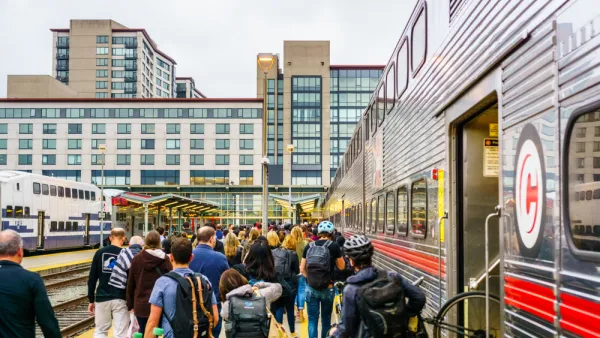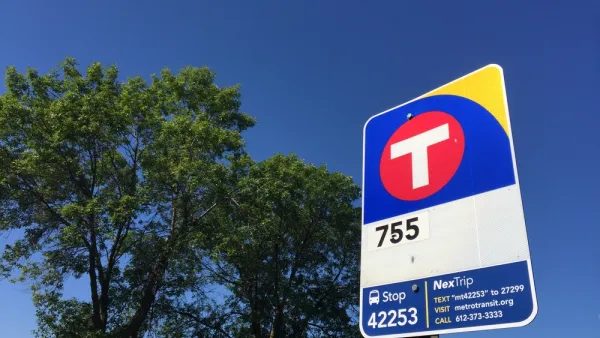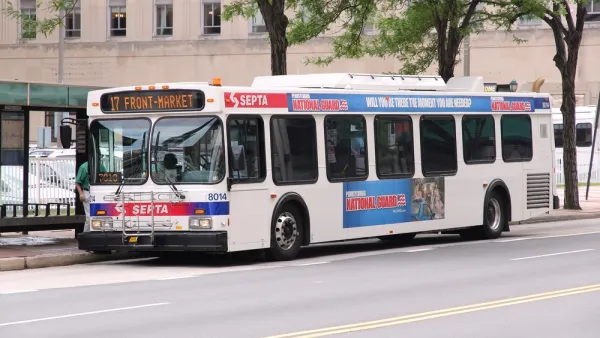The author of ‘The Great American Transit Disaster’ explains how U.S. transit agencies got to the existential crisis they face today.

In an interview in Bloomberg CityLab, David Zipper speaks with author Nicholas Dagen Bloom about his new book, The Great American Transit Disaster, in which Dagen Bloom describes how “US public transportation has lurched from one crisis to the next throughout the past century.”
Zipper writes, “Focusing on the histories of Atlanta, Baltimore, Boston, Chicago, Detroit and San Francisco, Bloom rejects the idea that there was anything preordained about the descent of private transit operators into bankruptcy or the decline in service offered by the public agencies that have operated buses and trains ever since.”
As Zipper notes, “It’s mind-blowing to consider just how good transit service once was.” In the early 20th century, transit was, Dagen Bloom adds, “a very profitable business,” but not for the reasons we might think. “The big money was always in the land development. Once the transit lines were built, the land was basically developed around them.”
While the rise of automobiles did have an impact on transit ridership, Dagen Bloom believes that “there was a whole series of compounding decisions made by city leaders, state leaders and private sector people” that led to the decline of transit systems. “You didn’t have to build systems of parkways and highways that were so comprehensive that you sacrifice neighborhoods. You didn’t have to completely demolish your downtowns, create massive federal programs that paid for parking ramps and give tax breaks on downtown parking.”
Ultimately, Dagen Bloom concludes, to save American transit, “someone’s got to fund transit” to pull agencies out of their current death spiral.
FULL STORY: Anatomy of an ‘American Transit Disaster’

Analysis: Cybertruck Fatality Rate Far Exceeds That of Ford Pinto
The Tesla Cybertruck was recalled seven times last year.

National Parks Layoffs Will Cause Communities to Lose Billions
Thousands of essential park workers were laid off this week, just before the busy spring break season.

Retro-silient?: America’s First “Eco-burb,” The Woodlands Turns 50
A master-planned community north of Houston offers lessons on green infrastructure and resilient design, but falls short of its founder’s lofty affordability and walkability goals.

Test News Post 1
This is a summary

Analysis: Cybertruck Fatality Rate Far Exceeds That of Ford Pinto
The Tesla Cybertruck was recalled seven times last year.

Test News Headline 46
Test for the image on the front page.
Urban Design for Planners 1: Software Tools
This six-course series explores essential urban design concepts using open source software and equips planners with the tools they need to participate fully in the urban design process.
Planning for Universal Design
Learn the tools for implementing Universal Design in planning regulations.
EMC Planning Group, Inc.
Planetizen
Planetizen
Mpact (formerly Rail~Volution)
Great Falls Development Authority, Inc.
HUDs Office of Policy Development and Research
NYU Wagner Graduate School of Public Service




























